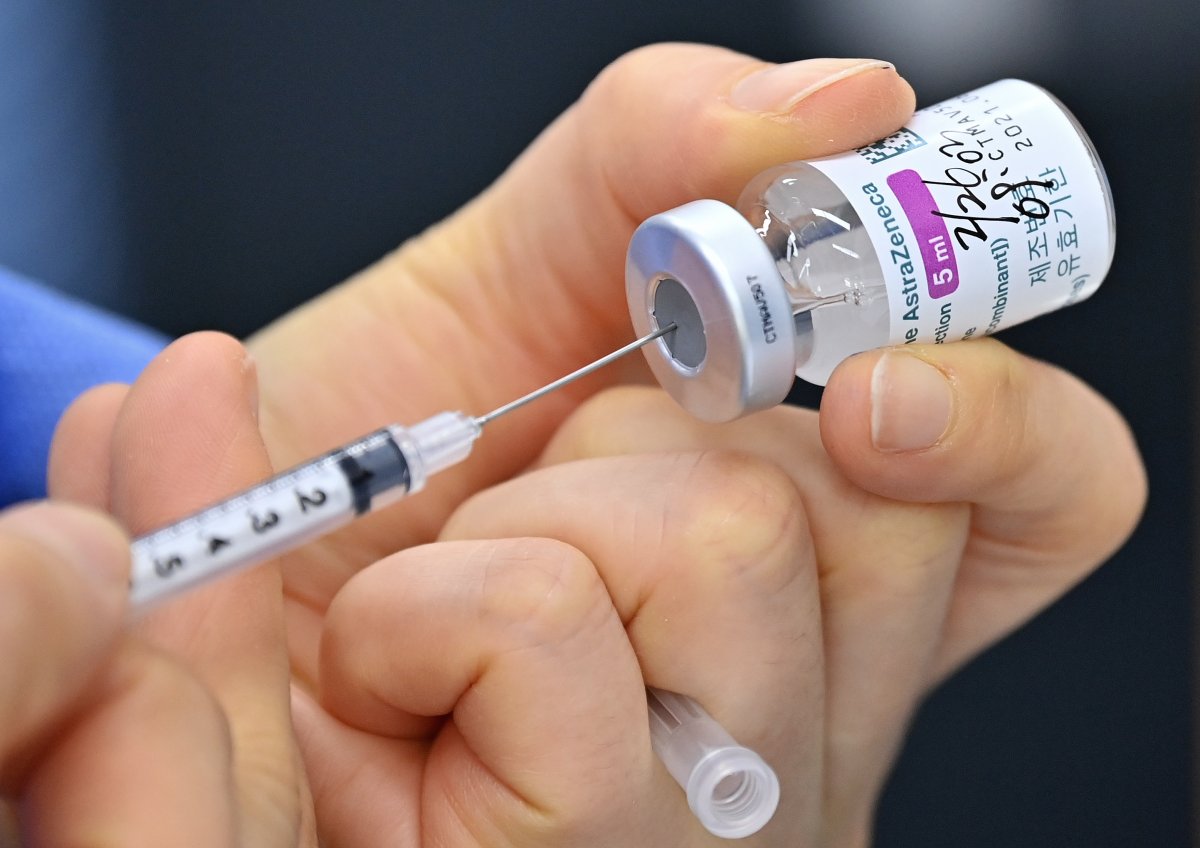On Wednesday, the European Medicines Agency (EMA) stated that blood clots with low blood platelets should be listed as very rare side effects of the Oxford-AstraZeneca (AZ) COVID vaccine.
It came to its conclusion based on a review of 86 blood clotting cases reported in the EU drug safety database, 18 of which were fatal. Most of these cases were reported from the EU as well as the U.K., where roughly 25 million people have received the jab. The EMA added the benefits of the vaccine still outweigh the risks.
Meanwhile, the U.K's MHRA medicine regulatory agency said on Wednesday the risk of blood clots with lowered platelets in those given the AZ vaccine was about four people in a million. This was based on a review of UK reports. The MHRA said: "Likelihood of these blood clots occurring is still extremely rare," but issued updated guidance for healthcare professionals on how to minimize risk, as well as a list of symptoms to look for.
Below, Newsweek has compiled some everyday blood clot risk factors to help put the AZ vaccine risk into perspective. Blood clots are also referred to as thrombosis.
Actually having COVID
COVID-19 has been associated with blood clots for months—so much so that one study, published in the Journal of Vascular Surgery in January this year, recommended that early medication against blood clots should be given to all admitted COVID patients.
The study adds: "The interplay between inflammation and thrombosis has been shown to be a hallmark of the SARS-CoV-2 viral infection."
An earlier study from April 2020, published in the journal Thrombosis Research, looked at 184 COVID patients in intensive care units in three Dutch hospitals and found that 31 percent had thrombotic complications—complications associated with blood clots—which it called "remarkably high."
The exact risk of blood clots with COVID is unclear; the January study noted the reported rate of VTE blood clots—clots in the veins—among critically ill COVID patients "has been 21 percent to 69 percent."
Professor Sir Munir Pirmohamed, the chair of the Committee of Human Medicines in the U.K., told Sky News a recent paper found that clotting in the lungs, also called pulmonary embolism, occurs in 7.8 percent of people who have COVID.
Sitting down too much during travel
The U.S. Centers for Disease Control and Prevention (CDC) states that a type of blood clotting called deep vein thrombosis (DVT) can be a serious risk for some long-distance travelers.
This is because the risk of developing such blood clots increases the longer a person is not moving.
A 2003 study also looked at past cases of pulmonary thromboembolism (PTE)—lung blood clots—among international arrivals at one airport between 1995 and 2000.
It identified 16 cases and found the overall incidence of that particular type of blood clot was 0.39 per 1 million passengers, or 1.65 per 1 million passengers on flights lasting over eight hours.
According to the U.K.'s National Institute for Health and Care Excellence (NICE)— which provides national health guidance—the risk of travel-related DVT in healthy people works out at around one event in 4,656 flights for flights lasting four hours or more, Sky News reports. This risk reduces significantly for shorter flights and increases for longer ones.
Female birth control pills and patches
Birth control pills have been widely reported to confer a risk of blood clots in women who take them.
According to the U.S. National Blood Clot Alliance (NBCA), birth control pills increase a woman's chances of developing a blood clot by about three to four times.
The NBCA states that the 1 in 1,000 women per year taking birth control pills will develop a blood clot. The risk is significantly higher if the woman already has a history of thrombosis.
It is thought the blood clotting risk due to contraceptive pills in women can be attributed to hormones the pills contain; estrogen and progesterone.
Contraceptive patches, also known as transdermal contraceptives, have been reported to release even more estrogen than pills, so the risk of clotting with patches may be higher than birth control pills as well as the AZ vaccine.
In 2016, Dr Sarah Hardman, Deputy Director at the Faculty of Sexual and Reproductive Healthcare, told the BBC: "It is accurate to say that a few women in 10,000, probably between five and 12 in 10,000 will have clotting events - a vein thrombosis event."
In addition, Margaret McCartney, a Scotland-based doctor, wrote in a Lancet journal article in 2020 that the estimated incidence of a blood clot in women taking the combined oral contraceptive pill is thought to be around five per 10,000 per year.
Smoking and obesity
A 2013 study published in the journal PLOS Medicine found that smoking is associated with an increased risk in venous thromboembolism (VTE)—blood clots in the veins.
The study looked at 32 other studies that had involved nearly 4,000,000 participants in which a total of 35,151 VTE events were recorded.
It found that smoking was associated with an absolute risk increase of 24.3 cases per 100,000 person-years.
Meanwhile, according to a 2015 review into the effects of obesity and VTE: "likelihood of first spontaneous VTE among people who were obese was more than twice that of individuals with a normal BMI." It cited a meta-analysis of nine other studies involving 8,125 patients with VTE and 23,272 control patients.

Uncommon Knowledge
Newsweek is committed to challenging conventional wisdom and finding connections in the search for common ground.
Newsweek is committed to challenging conventional wisdom and finding connections in the search for common ground.





